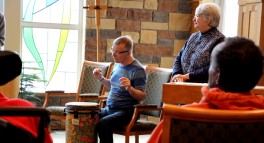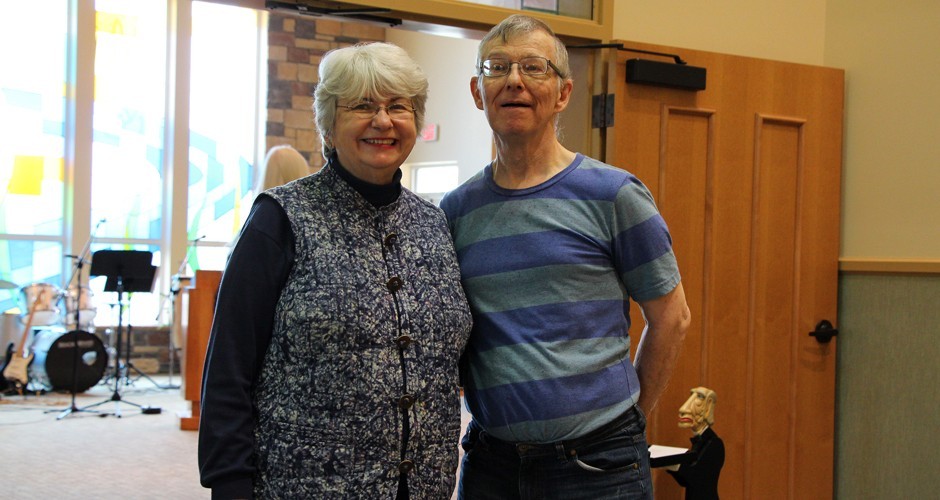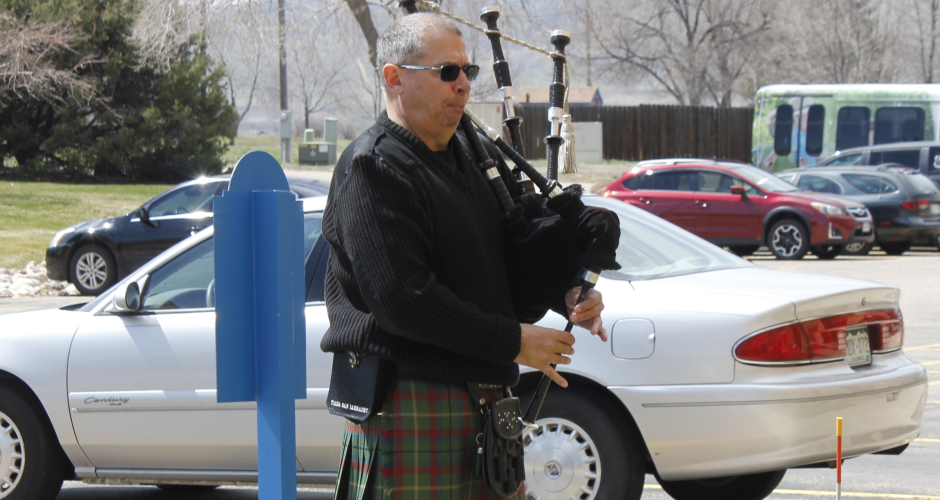In the video above, Jennette Wasmund shares how drumming has become a beloved activity for her husband, Fred.
Jennette Wasmund knew she needed help for both herself and her husband, Fred.
Fred has Huntington’s disease. The disease slowly strips one's memory, weakens the body and typically requires extensive care in its later stages.
Huntington’s disease (HD) is a fatal genetic disorder that causes the progressive breakdown of nerve cells in the brain.
It affects a person’s physical and mental conditions and has no cure. HD is known as a family disease because every child of a parent with HD has a 50/50 chance of carrying the faulty gene.
There are about 30,000 Americans with symptoms and more than 200,000 who could inherit the disease.
Early stage HD usually includes subtle changes in coordination, involuntary movements, depression, irritability and difficulty thinking through problems. The effects of the disease may make the person less able to work at their customary level and less functional in their regular activities at home.
In the middle stage, movement might become more of a problem. Occupational and physical therapists may help maintain control of movements and deal with changes in thinking and reasoning. A speech pathologist can help with diminished and difficult speech.
In the late stages, the person is totally dependent on others for care.
To meet Fred's needs during the early stages of the disease, the couple made minor adjustments to their daily lives.
But, the care Fred required quickly became overwhelming.
The couple turned to Good Samaritan Society – Specialty Care Community in Robbinsdale, Minnesota, which has an entire unit dedicated to Huntington’s disease care.
He has flourished here. It was probably the hardest and best decision I ever had to make." – Jennette Wasmund, on moving her husband to a Good Samaritan Society care center
Keeping Fred comfortable was one reason for the move. Another was keeping him happy and actively involved in life through music therapy.
"He has learned how to play the African drum, which is so dear to his heart," Jennette says of her husband. "If he can’t sleep at night, he will get up and pound on that drum to relax himself.”

Music therapy's ripple effect
Staying involved through music therapy has benefited Fred in other ways, Jennette says.
Fred performs at church, events such as funerals, and in a rock group within Specialty Care Community.
Music therapy can address physical, emotional, cognitive and social needs, according to the American Music Therapy Association.
Its benefits also extend beyond Fred. Seeing Fred happy has made Jennette happy.
Hear more about Jennette's decision in finding help for Fred in the video below:
It also brought Jennette relief. She says the decision to place her husband in a care community was difficult and she felt guilty.
Read more about Jennette's decision
However, “he has flourished here," Jennette says. "It was probably the hardest and best decision I ever had to make."
Seeking care for a loved one?


